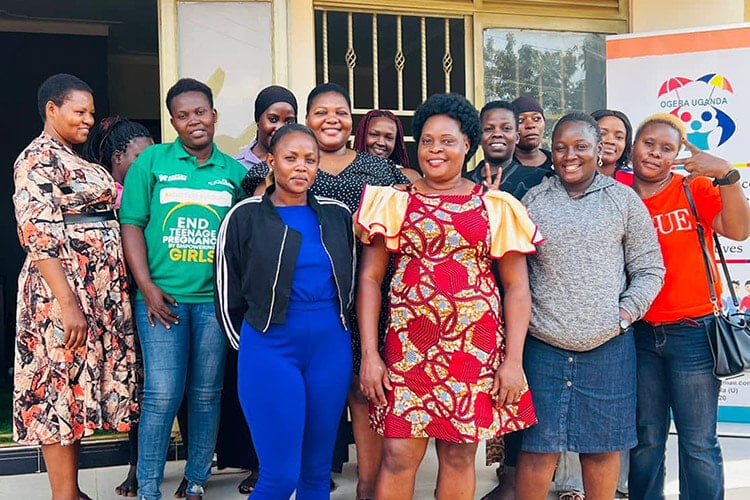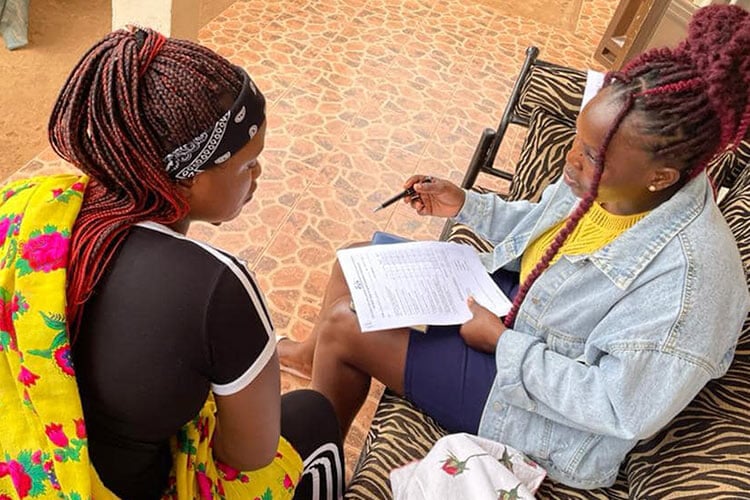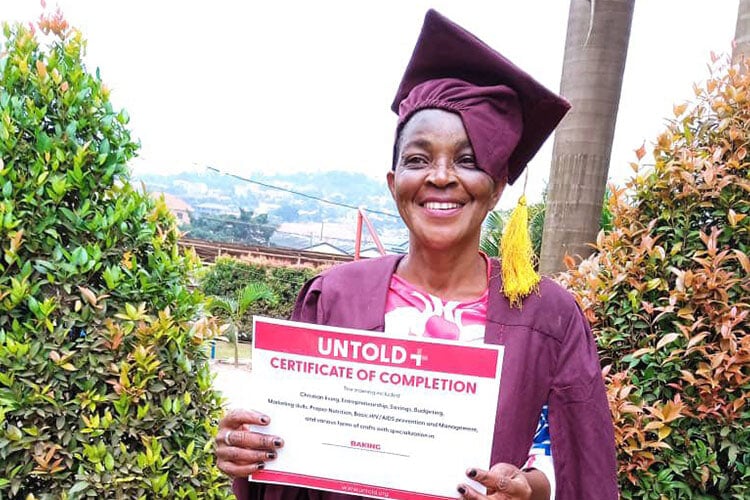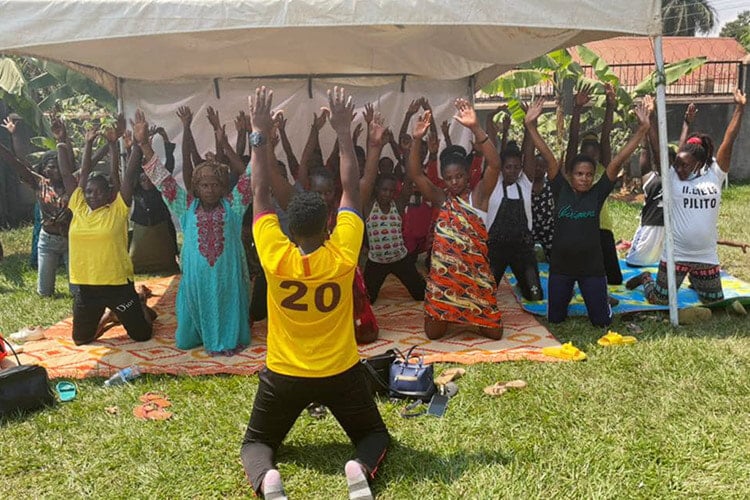On the streets skirting refugee camps across Uganda, sex workers eke out a living on the margins of legality; their very profession and immigration status marking them for harassment, arrest, and detention.
Within this community, lesbian, bisexual and queer women have become particularly vulnerable after Uganda’s recent passage of the Anti-Homosexuality Act, a draconian law that criminalizes homosexuality, making some offences punishable by death. And yet, it is at this intersection of gender identity and human rights that one AJWS grantee works to empower migrant and refugee sex workers to advocate for their health, safety and economic wellbeing.
The Organization for Gender Empowerment and Rights Advocacy (OGERA) was founded nearly a decade ago by Shamilah Batte. Over the years, it has grown to have a presence in 10 districts across northern, western, and central Uganda. Shamilah’s mission is informed by her own personal journey as a migrant, a lesbian and a sex worker.

Shamilah emigrated from Rwanda in 1994 at the age of six to escape the genocide that claimed nearly one million lives. She settled in Uganda where she later became a naturalized citizen. She had been working at another female sex worker-led organization but kept encountering difficulties when trying to address the community’s multilayered and unique vulnerabilities — such as the dual criminalization of same-sex relationships and sex work, language barriers, heightened trauma, discriminatory health services and lack of legal protection.
She still recalls the many myths and misconceptions in that space.
“People would say ‘It could be quite okay being a sex worker or a lesbian, but not both.’ And there was also a lot of stigma around refugees and migrants. I knew there were people like me who were going through so much but had nowhere to turn. I felt like there needed to be a space for such a community because they had issues that were not being fully addressed,” she says.
Today, OGERA’s team of six staff and three volunteers develop effective programs for the more than 1,600 refugee and migrant female sex workers with multilayered vulnerabilities that OGERA serves across the country. This includes vocational skills training, safety briefings and psychosocial support for survivors of gender-based violence.

OGERA also works to document human rights violations to strengthen their advocacy and conducts rights awareness sessions to ensure that the community, most of whom migrated from the Democratic Republic of Congo, South Sudan and Rwanda, understands the local and cultural contexts.
In OGERA’s popular Peer Navigator program, women learn how to support each other as well as advocate for their human rights and health care access. This particular aspect of OGERA’s work, however, has grown more challenging since the Trump administration slashed foreign assistance, leading health care facilities nationwide to halt services tailored to the queer community.
“Initially (there were) community-led and focused clinics or drop-in centers and health facilities where our community could come and access nondiscriminatory services. But a lot has changed,” Shamilah said. “We are now seeing people shying away and not getting the help they need. That has really affected their health and wellbeing.”
Staff have been documenting an alarming rise in AIDS cases because those with HIV no longer have access to their medicines or specialized care.
“As an organization, we are trying to fill in the gaps,” Shamilah said. “But with limited access to resources, it is very difficult.”
Still, the team at OGERA remains committed to their mission and to providing a lifeline to migrant and refugee sex workers, women like Sheebah.

In 2015, she tested positive for HIV and said her life “completely fell apart,” Sheebah says today. Her family in Rwanda disowned and abandoned her, saying she damaged the family reputation. Her mother blamed her diagnosis on her “immoral practices” as a bisexual person and a sex worker. A friend who had moved to Uganda, helped her migrate and connected her with a brothel. But Sheebah was dogged by despair.
“I had reached a breaking point and stopped taking care of myself including not taking my HIV medication; I considered ending my life at this point because it all felt worthless,” she says. “It was in my darkest moment that OGERA found me; they did not only offer help but reminded me that my life mattered.”
Sheebah took part in psychosocial support sessions, peer counseling and wellness sessions, and slowly began to rediscover hope. She joined OGERA’s Positive Club, a group of peers living with HIV/AIDs and learned how to manage her health and resumed her treatments (her peers later elected her to lead the group).

She also participated in OGERA’s Economic Empowerment Program, where she learned candle making, baking and mushroom farming. She recently graduated from a partner vocational training program and received funding to start her own business.
“(Now) at the age of 50, I can gladly retire from sex work not worrying about my backup plan because OGERA has already given me enough skills for my retirement security,” Sheebah says.
“This organization saved my life,” she continues. “They walked with me when I had nothing, when I wanted to give up and today, I am happy that I am alive, healthy, skilled, and I help others survive.”
